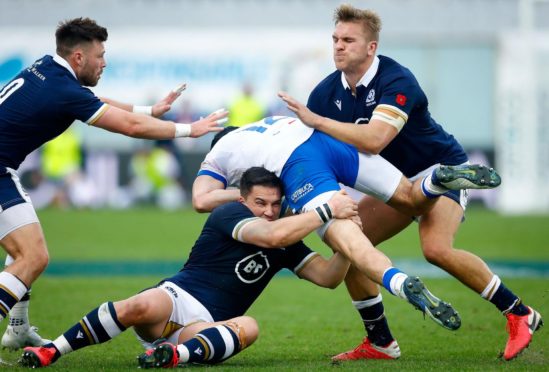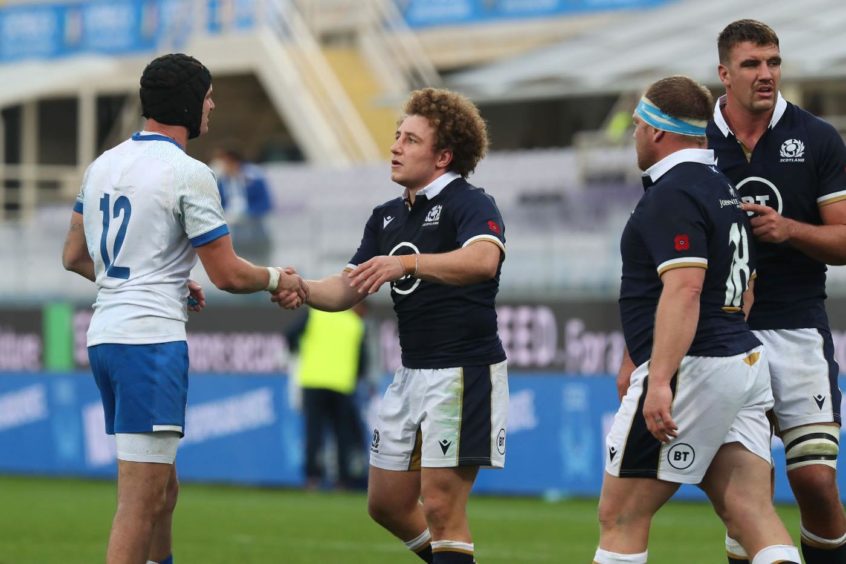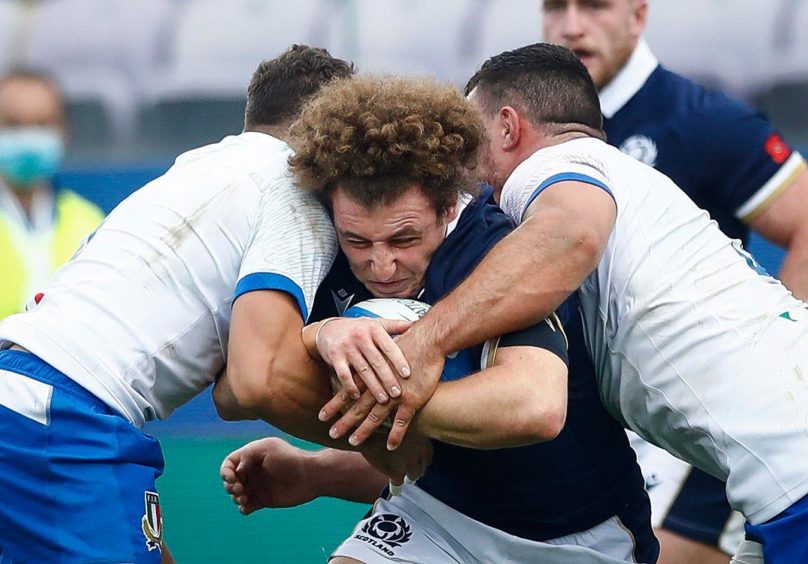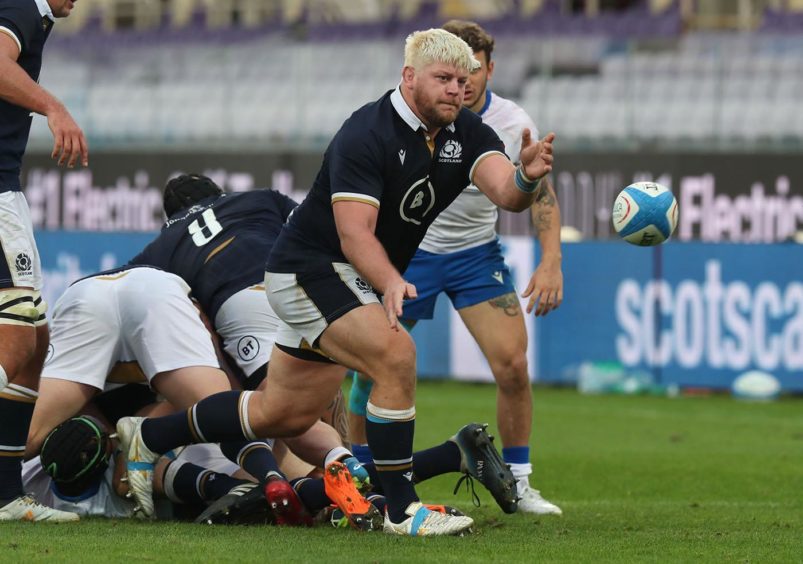A fifth win in succession, and plenty there to improve on. Head coach Gregor Townsend’s cup runneth over as Scotland’s upward arc continued with the 28-17 victory over Italy in Florence.
It was a lot less comfortable in the flesh than it was on the scoreboard, but the win was secured despite the pre-match disruption of the loss of the frontline stand-offs and the mini-crises in the game of the early departure of Rory Sutherland and Jamie Ritchie, maybe the two most improved and influential players during this recent run.
The win and the obvious things to keep working on are just what a head coach likes, said Townsend. France for a second time in 2020 – Scotland are the only team to beat them this year so far – will be the biggest challenge of the run, but here’s five points which give cause for further optimism moving forward.
Scotland have moved on considerably since Rome in February
This run of wins started with the dreadful 17-0 slog in the Stadio Olimpico during the Six Nations, and there was obvious comparison to be made. This Italy were miles better than the harum-scarum outfit they were that gloriously sunny day, but the Scots were much better as well.
Scotland struggled to convert chances in February, but they scored tries on four of the six occasions they got within scoring range this time. The setpiece was pretty much the same, but the maul much more efficient, wearing down the Italians and an effective weapon in all four tries, if indirectly for the first three.
Scotland’s didn’t even attempt a penalty at goal, so confident are they in their ability to secure and drive lineout ball, although one would expect them to go to the posts against France much more often.
Apart from one missed tackle – see below – the defence was actually sounder than in Rome. The Italians broke through more times in the spring but Scotland scrambled effectively and Italy’s finishing was dreadful.
It was encouraging for Italy to see a young side play so well for an hour – they’re really much better than Georgia, despite what the world rankings and some people say. The fact that Scotland eventually still beat them soundly is a cause for optimism.
The Scottish half-time dressing room enjoys a healthy debate
The sheds at half-time should always be an opportunity for a reset, and rarely are they as radical as Twickenham in 2019, when Scotland were 31-7 down and there was the famous “argument” about tactics.
Saturday’s was much less fraught of a situation at 11-7 down, but Stuart Hogg later admitted to be a little piqued at his head coach’s assertion that Scotland weren’t working hard enough.
But he and the team took it on board and corrected to the tune of a 21-6 second half surge – there was really only one team in it once the Scots found their groove. Townsend later said the team found that groove themselves in the latter part of the first half.
It’s good that there’s a resilience in this Scottish team when things go wrong, as they did in Llanelli. It’s also good that the team are big enough to find solutions themselves. It’s very good that the debates sometimes get heated at half-time. These are all signs of a fast-developing team.
Dunky will do for now
Denied a try on his comeback due to a forward pass, the fan’s favourite was reasonably solid, but there’s a reason why Russell and Hastings go first when fit and we saw it clearly.
Scotland’s attack had less pep and threat – a narrow pitch didn’t help, to be fair – and it was also noticeabe that Ali Price took over more distribution duties, providing the short passes for Duhan van der Merwe and Scott Cummings’ tries.
Weir kicked pretty well but his open-field missed tackle on Italy’s big young centre Marco Zanon led directly to Italy’s try, and later he was parked out wide on defensive sets. Russell’s defence is an underappreciated asset, and his Racing clubmate, France centre Virimi Vakatawa, will have no doubt noted Weir’s defensive lapse for next Sunday.
There is no other option until the New Year, and Scotland should get by with Weir at the helm for the rest of this tournament. We’re lucky to have him in these circumstances, but Finn and Adam’s eventual return is not a question.
Don’t panic over one scrum
Scotland’s scrummage has been their revelation of 2020 – even to Gregor Townsend, it seems – but they looked monstered at one engagement early in the first half, driven back yards by a secondary shove from the Italians.
There was incriminating evidence afterwards – loose-head Rory Sutherland prone, his ankle having gone at some point in that scrum. As a result, we can write it off.
After that – there had been a free kick and penalty against the Scots in the first two scrums as they struggled to get on referee Luke Pearce’s particular wavelength – everything was perfectly solid.
Scotland’s final try came from position gained by a penalty award at the scrum – it remains a setpiece of real strength other than that one outlier. Oli Kebble is a more than able replacement for Sutherland, and is probably a more effective ball-carrier. Nothing to panic about here.
Duhan van der Merwe must stay in the team
As we expected he might, the residency-qualified Edinburgh wing has made an immediate impact at international level.
He’s yet to be tested properly by a ball over his head, and no doubt France’s Romain N’Tamack will oblige next Sunday. But there is no quibble about 143 metres made, easily the most in the game and double the total of Stuart Hogg, who fields the long kicks at full-back and so gets lots of cheap metres.
Two tries so far as well, and there will doubtless be more to come. France’s Teddy Thomas should be a big test for Duhan on both sides of the ball but I don’t see any convincing reason why Townsend shouldn’t expose him to that.







